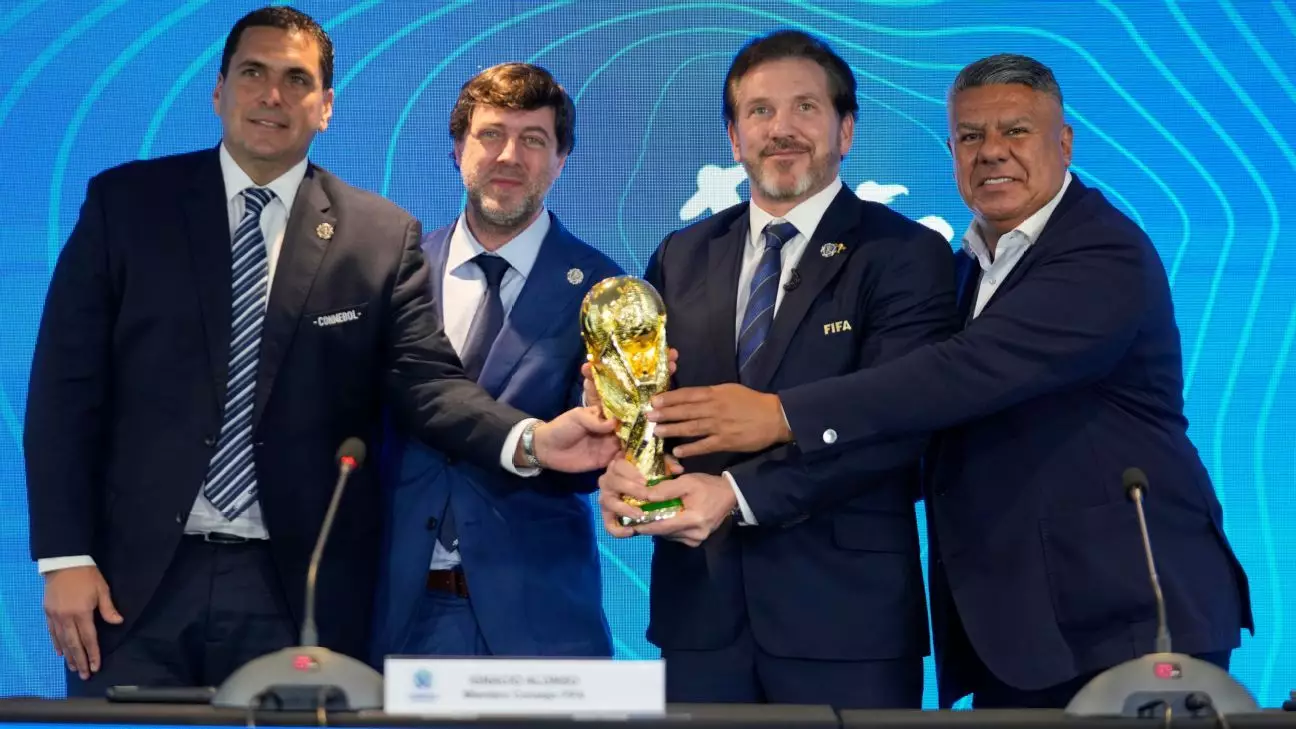The discussions surrounding the expansion of the men’s World Cup to 64 teams have stirred considerable debate within the soccer community. UEFA President Aleksander Čeferin unequivocally criticized this proposal, labeling it “a bad idea” during a recent news conference. His remarks came after a meeting where a delegate from Uruguay unexpectedly suggested such an expansive format, which left many, including Čeferin, taken aback. The skepticism toward this idea primarily revolves around the potential consequences for the quality of play and the sanctity of the tournament itself.
Quality Over Quantity
At the heart of the criticism lies a fundamental concern: will our beloved sport lose its essence in the pursuit of more teams? An expanded tournament would inevitably dilute the level of competition. A jump from 48 to 64 teams not only multiplies the number of matches—potentially leading to a concerning 128-game format—but also raises alarms about the caliber of teams involved. Traditional powerhouses might find themselves facing off against less experienced teams, which can result in imbalanced matches and less thrilling experiences for fans. The World Cup has long been revered for its ability to showcase the best talent on the global stage; a shift toward inclusion at the cost of quality may undermine football’s competitive spirit.
The Hidden Costs of Expansion
Moreover, the impact on the qualification process raises red flags. UEFA has already restructured its qualifying tournament to accommodate more teams, introducing additional groups that require a greater investment of time and resources. The influx of new entries in the World Cup qualifying rounds could threaten the hard-fought paths of many established teams. The added complexity could lead to a devaluation of the significance of qualification, transforming it from a coveted achievement into a mere formality. As Čeferin argues, this isn’t just detrimental to the World Cup; it could also disrupt the competitive landscape of continental qualifiers.
FIFA’s Financial Motivations
FIFA President Gianni Infantino has consistently supported tournament expansions, often citing the potential for increased revenue and development of the game. While financial growth is indeed critical, prioritizing profits over the integrity and quality of the matches may lead to dire consequences. Are we willing to sacrifice the storied tradition of the World Cup, which has captivated millions for over a century, purely for a temporary influx of cash? The influx of teams from under-represented nations could be welcoming—promoting diversity and development—but we must cautiously weigh this against the potential fallout of a diluted product.
Seeking Clarity Amid Confusion
The origins of the 64-team proposal have also added a layer of confusion. Čeferin’s statement about not being informed of this plan prior to the FIFA council meeting suggests a breakdown in communication among football’s governing bodies. This lack of insight raises concerns about the decision-making process and accountability. With 2026’s World Cup already set to be the most complex in history—spanning three continents to celebrate the tournament’s centenary—introducing a radical change just adds to the chaos.
The World Cup is more than just a series of matches; it embodies a spirit of competition that connects nations and cultures. As the conversation progresses, it’s vital to seek a balanced approach that considers both the sport’s integrity and the opportunity for growth.

